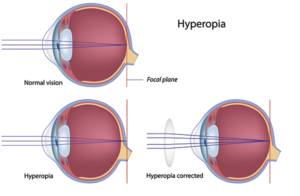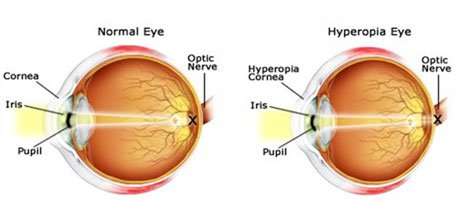
One of the main symptoms of farsightedness is the blurry or crossed vision. A patient may also experience headaches and eye rubbing. Both of these conditions are symptoms of farsightedness. Although a person can self-diagnose their condition, they will need to visit an ophthalmologist for a complete examination. An eye exam that focuses on reading letters and identifying a person’s prescription can only diagnose nearsightedness and not distance vision.
Other symptoms of farsightedness include difficulty focusing on near objects. As people age, the lens in the eye becomes thicker and stiffer. The main symptom of farsightedness is difficulty seeing objects close up. A patient may experience a headache after reading for a long time. The eye condition may be treated, but the symptoms often return after a few years. It is important to visit an ophthalmologist to ensure that the condition is correctable.
As a result, farsighted eyes fail to properly refract light. They under-focus the light that enters them. This results in an incomplete image forming on the retina. The images are therefore distorted or blurred. The eye will compensate for the problem by sending messages to the brain. As a result, the eyes will often have problems with reading, hand-eye coordination, and headaches. Sometimes, children are unaware of their farsightedness symptoms, and some may never develop any symptoms.
There are several possible treatments for farsightedness. Patients can wear corrective lenses to improve their vision, or undergo refractive surgery. Laser-assisted in-situ keratomileusis (LASIK) is a common procedure to correct farsightedness. LASIK uses a laser to change the curvature of the cornea and alter light refraction. The patient will have a focused image on the retina.
Presbyopia occurs when a person becomes unable to see fine details. As a person gets older, their lens becomes thicker and rigid. The main symptoms of this condition are headaches and trouble with close-up work. If you suffer from either of these conditions, you should see an ophthalmologist as soon as possible. If you do, you may be experiencing some of the symptoms of presbyopia.

If you experience headaches after reading a book, your eye is not working properly. You may be suffering from myopia or hyperopia. If you suffer from both, it is recommended that you consult an ophthalmologist. A physician will be able to determine which one you have. During your exam, the doctor will determine the best way to treat your condition. If you are not experiencing any symptoms, then you need to seek treatment.
If these symptoms appear, you should consult an ophthalmologist. Your doctor will determine the cause of your farsightedness. If you are farsighted, you may not be able to focus on close-up objects. Your eyes will be farsighted if you cannot read objects at a distance. Apart from headaches, you will also experience eye strain and eye pain. You should be able to find the best treatment for your condition.
Another reason for farsightedness is aging. As you age, your eyes will become less flexible, causing your eyes to become increasingly farsighted. After reading for a long time, you may also experience headaches. To prevent these symptoms, you should wear sunglasses or contact lenses with 99% UV protection. If you are both nearsighted and farsighted, see an ophthalmologist to have your vision evaluated. Once symptoms begin, it’s best to see a doctor Michael Curt to make sure you don’t develop further eye problems.
Presbyopia, or the inability to see close objects clearly, is a common symptom of farsightedness. This is a common condition that occurs after age 40 and is caused by the thickening and hardening of the lens of the eye. The main symptoms of farsightedness include headaches, blurred vision, and trouble concentrating on close objects. People with both conditions should see an ophthalmologist to determine whether their condition is permanent.
The causes of farsightedness can be hereditary, but in most cases it is a hereditary condition. In rare cases, it may be caused by an eye tumor or a rare disease. If you are farsighted, it can affect reading and approaching objects, especially at night. If you have farsightedness, it will most likely begin in early childhood, but there are ways to correct it with glasses, contact lenses, and corrective surgery.
